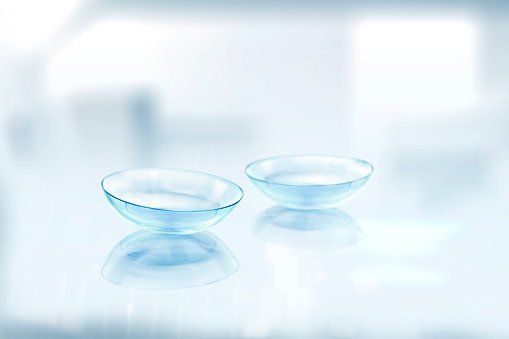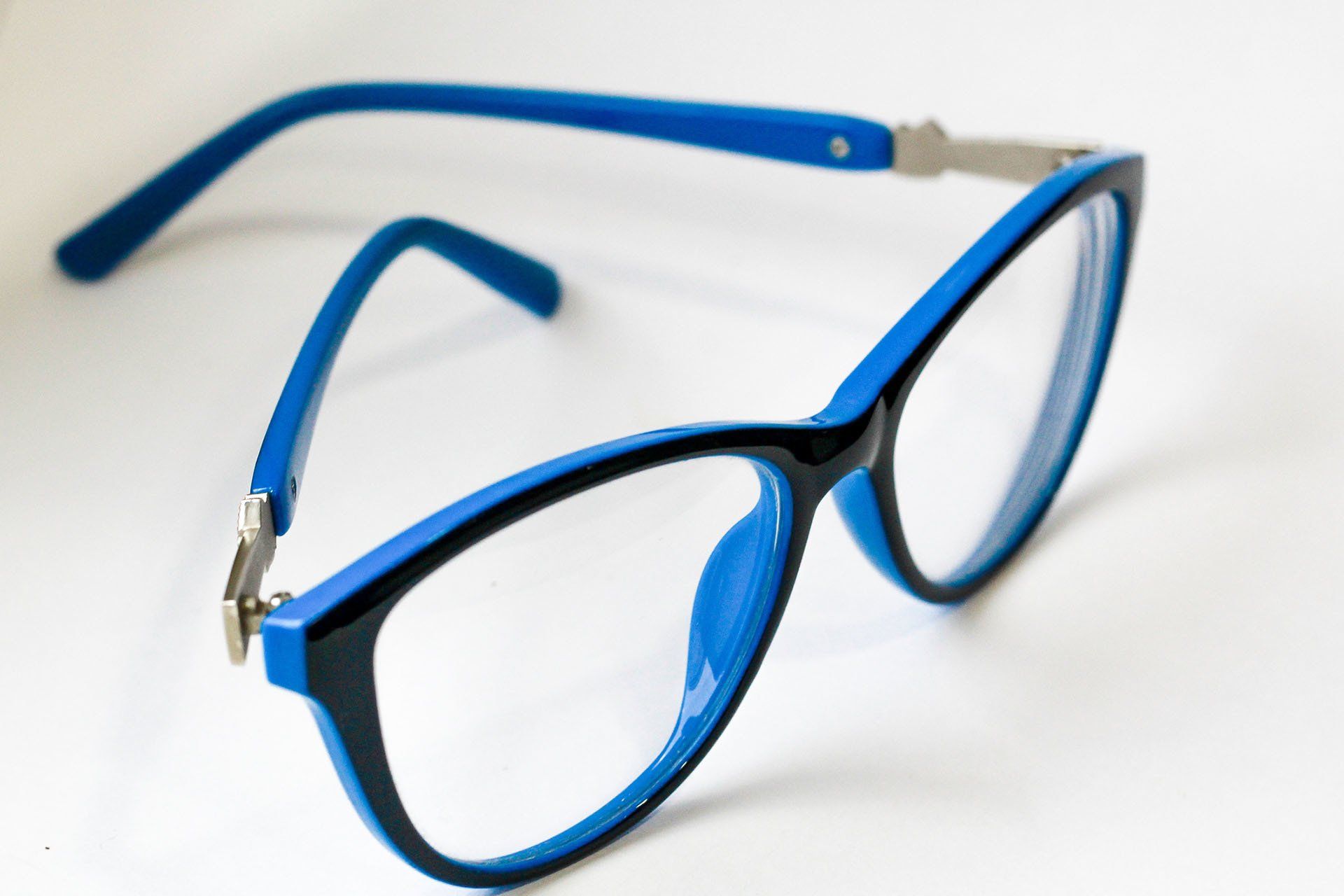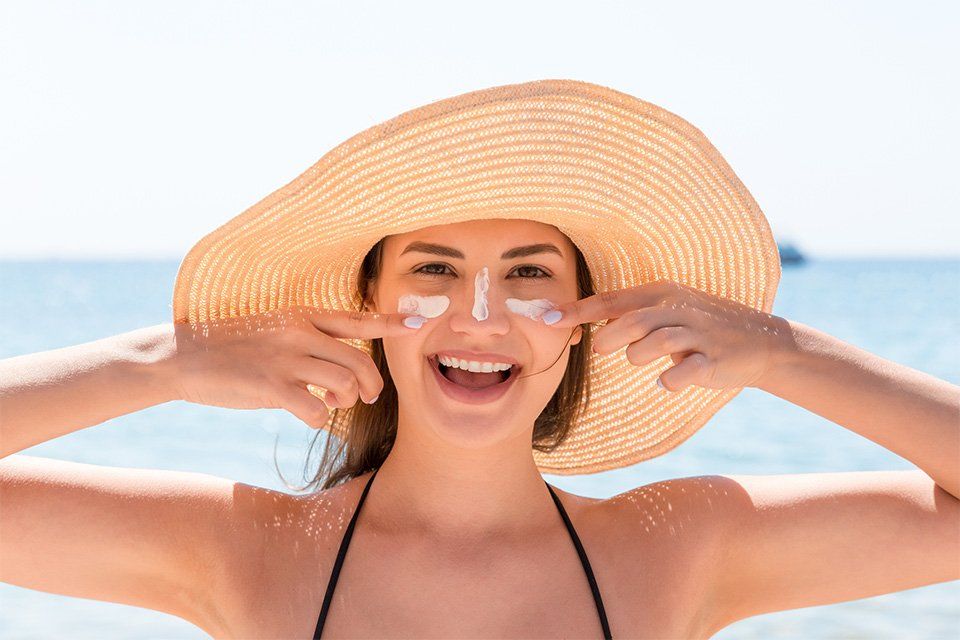Pink eye, or conjunctivitis, is one of the most common irritations of the eye. Learn four tips for managing and preventing this common eye problem.
See Good, Look Good, Fraser Optical
Serving Greater Detroit
Contact Us
Fraser:
586-293-8888
Richmond:
586-727-7555
Romeo:
586-752-9898
Shelby Township: 586-254-9620
Sterling Heights:
586-977-9010
Oscoda:
989-739-2020
Blog Post
Contact Lenses: Deciding If Your Child Would Benefit From Contacts
Admin • September 12, 2018
Contact lenses, particularly gas permeable lenses, can help your child see better than when he or she wears eyeglasses. Although only 10 percent
of individuals who wear contact lenses are younger than 18, there are some important factors to think about when deciding if your child is ready to advance from wearing eyeglasses to wearing contact lenses.
Consider the Responsibility Contacts Require
Whether your child is ready to make the move from eyeglasses to contact lenses doesn't really depend on their age, but on how responsible he or she is. Generally, your child needs to be able to follow detailed instructions for contact lens care and wear - without constant reminders from you.
Your child must clean the lenses regularly to prevent an eye infection. And improper lens care can lead to an eye infection, which has symptoms like increased sensitivity to light, redness, pain, tearing, and blurry vision.
Make sure your child or teen doesn't moisten his or her contact lenses with saliva, which is swarming with bacteria. Eye doctors recommend the use of disinfecting solution (rather than a saline solution or tap water) for cleaning, wetting, and storing contact lenses.
Consider the Benefits Contacts Offer
Once you determine your child is responsible enough to wear contact lenses, you should consider the benefits that contact lenses offer.
Contacts Provide a Broader Range of Vision
Eyeglasses can distort peripheral vision, in particular, the rims of eyeglasses are famous for obstructing side vision. Contacts adjust to the curvature of the eye, providing a wider field of vision. Because contact lenses sit directly on the eyes, your child will have better peripheral vision.
Contacts May Reshape the Cornea
Some contact lenses can even reshape the cornea of the eye. For example, lenses that your child can wear while sleeping may temporarily correct myopia (nearsightedness) by flattening the cornea.
The therapy - known as orthokeratology, or ortho-k - allows for clearer vision the next day without wearing eyeglasses or contact lenses. Some studies suggest
that wearing these specially-fitted lenses slows the progression of myopia in children.
Your child removes the lenses the next morning when he or she wakes. Although some kids can see without wearing corrective lenses for a day or two, your child should wear the ortho-k lenses every night to get the best results.
Whether ortho-k lenses can correct your child's refractive error depends on the severity of his or her vision problem. Generally, children with mild to moderate myopia are good candidates for corneal reshaping lenses.
Contacts Increase Safety for Sports and Outdoor Activities
Unlike eyeglasses, contacts won't fall off or get broken when playing sports or participating in outdoor play and other activities. Contact lenses stay in place and won't slide down your child's nose. They also won't fog up and blur his or her vision at that crucial moment before making a touchdown, field goal, or basket. The safety goggles that many sports require also are easier and more comfortable to wear with contacts.
Contacts Enhance Self-Esteem
Contact lenses can help boost your child's self-esteem, especially during the preteen and teen years. For children who require a strong eyeglass prescription, the edges of the lenses may be thick, or the eyeglasses can make your child's eyes look unnaturally large or small. Consequently, some kids feel unattractive or are embarrassed by wearing eyeglasses.
In contrast, contacts look and feel natural. This may help your child feel more confident in his or her appearance. Children who feel better about how they look can have higher overall self-esteem.
If you feel uncertain about whether your son or daughter is ready to wear contact lenses, contact Fraser Optical
to schedule an examination by an eye care professional. We will determine if wearing contact lenses will provide the right vision treatment for your child's eyes.
Share
Tweet
Share
Mail
Dr. Denise Duffy
Dr. Denise Duffy graduated from Ferris State University College of Optometry in 2016. Being able to help patients meet their visual needs is what she likes best about being an Optometrist. Born and raised in Macomb Michigan Dr. Duffy resides with her husband and family in Shelby Township. In her spare time she likes traveling and is an avid reader. Currently Dr. Duffy sees patients at our Sterling Heights and Shelby Township locations.
Summertime Eye Protection
Summer is a time to get outside and enjoy some of our favorite sports and other physical activities.
What Is Pink Eye?
Pink eye, or conjunctivitis is redness and inflammation of the membranes covering the whites of the eyes and inner portion of the eyelids. Pink eye may be either infectious or noninfectious.
Eye Care Instructions for People Using Computers
Spending long hours in front of a television or computer is part of many people’s lives today.
Did You Know…?
Fraser Location
32925 Groesbeck Highway
(At 14 Mile Road)
Fraser, MI 48026
Phone:
586-293-8888
Fax:
586-859-0233
Business Hours:
Monday, 9 a.m.-7 p.m.
Tuesday, 9 a.m.-6 p.m.
Wednesday, 9 a.m.-6 p.m.
Thursday, 9 a.m.-7 p.m.
Friday, 9 a.m.-6 p.m.
Saturday, 8 a.m.-2 p.m.
Sunday, closed
Richmond Location
67205 Main St.
(at Gratiot)
Richmond, MI 48062
Phone: 586-727-7555
Fax: 586-248-5056
Business Hours:
Monday, 9 a.m.-6 p.m.
Tuesday, 9 a.m.-6 p.m.
Wednesday, 9 a.m.-4 p.m.
Thursday, 9 a.m.-7 p.m.
Friday, 9 a.m.-6 p.m.
Saturday, 8 a.m.-2 p.m.
Sunday, closed
Romeo Location
71150 N. Van Dyke
(Fiddlers Cover Shopping Center)
Romeo, MI 48065
Phone:
586-752-9898
Fax:
586-372-8905
Business Hours:
Monday, 9 a.m.-6 p.m.
Tuesday, 9 a.m.-7 p.m.
Wednesday, 9 a.m.-4 p.m.
Thursday, 9 a.m.-7 p.m.
Friday, 9 a.m.-6 p.m.
Saturday, 8 a.m.-2 p.m.
Sunday, closed
Shelby Township Location
51026 Van Dyke
(At 23 Mile NE Corner)
Shelby Township, MI 48316
Phone:
586-254-9620
Fax:
586-884-7867
Business Hours:
Monday, 9 a.m.-7 p.m.
Tuesday, 9 a.m.-6 p.m.
Wednesday, 9 a.m.-4 p.m.
Thursday, 9 a.m.-7 p.m.
Friday, 9 a.m.-6 p.m.
Saturday, 8 a.m.-2 p.m.
Sunday, closed
Sterling Heights Location
3602 15 Mile Road
(West of Ryan Road)
Sterling Heights, MI 48310
Phone:
586-977-9010
Fax:
586-413-7870
Business Hours:
Monday, 9 a.m.-7 p.m.
Tuesday, 9 a.m.-4 p.m.
Wednesday, 9 a.m.-6 p.m.
Thursday, 9 a.m.-7 p.m.
Friday, 9 a.m.-6 p.m.
Saturday, 8 a.m.-2 p.m.
Sunday, closed
Oscoda Location
211 N. State St.
Oscoda, MI 48750
Phone:
989-739-2020
Fax:
989-569-5056
Business Hours:
Monday, 9 a.m.-5 p.m.
Tuesday, 9 a.m.-7 p.m.
Wednesday, 9 a.m.-5 p.m.
Thursday, 9 a.m.-5 p.m.
Friday, 9 a.m.-5 p.m.
Saturday, 9 a.m.-1 p.m.
Sunday, closed
Fraser Location
32925 Groesbeck Highway
(At 14 Mile Road)
Fraser, MI 48026
Phone:
586-293-8888
Fax:
586-859-0233
Business Hours:
Monday, 9 a.m.-6 p.m.
Tuesday, 9 a.m.-6 p.m.
Wednesday, 9 a.m.-6 p.m.
Thursday, 9 a.m.-7 p.m.
Friday, 9 a.m.-6 p.m.
Saturday, 8 a.m.-2 p.m.
Sunday, closed
Richmond Location
67205 Main St.
Richmond, MI 48062
Phone:
586-727-7555
Fax:
586-248-5056
Business Hours:
Monday, 9 a.m.-6 p.m.
Tuesday, 9 a.m.-6 p.m.
Wednesday, 9 a.m.-4 p.m.
Thursday, 9 a.m.-7 p.m.
Friday, 9 a.m.-6 p.m.
Saturday, 8 a.m.-2 p.m.
Sunday, closed
Romeo Location
71150 N. Van Dyke
(Fiddlers Cover Shopping Center)
Romeo, MI 48065
Phone:
586-752-9898
Fax:
586-372-8905
Business Hours:
Monday, 9 a.m.-6 p.m.
Tuesday, 9 a.m.-6 p.m.
Wednesday, 9 a.m.-4 p.m.
Thursday, 9 a.m.-7 p.m.
Friday, 9 a.m.-6 p.m.
Saturday, 8 a.m.-2 p.m.
Sunday, closed
Shelby Township Location
51026 Van Dyke
(At 23 Mile NE Corner)
Shelby Township, MI 48316
Phone:
586-254-9620
Fax:
586-884-7867
Business Hours:
Monday, 9 a.m.-6 p.m.
Tuesday, 9 a.m.-6 p.m.
Wednesday, 9 a.m.-4 p.m.
Thursday, 9 a.m.-7 p.m.
Friday, 9 a.m.-6 p.m.
Saturday, 8 a.m.-2 p.m.
Sunday, closed
Sterling Heights Location
3602 15 Mile Road
(West of Ryan Road)
Sterling Heights, MI 48310
Phone:
586-977-9010
Fax:
586-413-7870
Business Hours:
Monday, 9 a.m.-6 p.m.
Tuesday, 9 a.m.-4 p.m.
Wednesday, 9 a.m.-6 p.m.
Thursday, 9 a.m.-7 p.m.
Friday, 9 a.m.-6 p.m.
Saturday, 8 a.m.-2 p.m.
Sunday, closed
Oscoda Location
211 N. State St.
Oscoda, MI 48750
Phone:
989-739-2020
Fax:
989-569-5056
Business Hours:
Monday, 9 a.m.-5 p.m.
Tuesday, 9 a.m.-7 p.m.
Wednesday, 9 a.m.-5 p.m.
Thursday, 9 a.m.-5 p.m.
Friday, 9 a.m.-5 p.m.
Saturday, closed
Sunday, closed
Content, including images, displayed on this website is protected by copyright laws. Downloading, republication, retransmission or reproduction of content on this website is strictly prohibited. Terms of Use
| Privacy Policy













